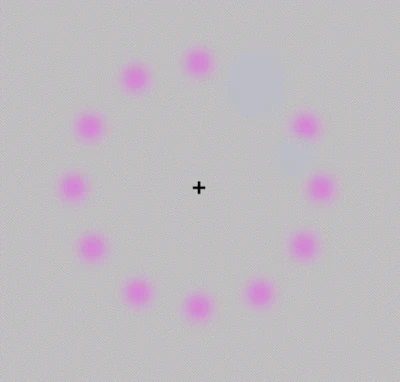There is an optical illusion known as the troxler effect it has been found by psychologists that people experience optical illusions of deformation of their faces after staring at oneself for 10 minutes in the mirror

The Troxler Effect: When Mirrors Play Tricks on Your Perception

Have you ever noticed how your reflection in the mirror seems to distort after staring at yourself for an extended period? This fascinating phenomenon is known as the Troxler Effect, and it has captivated psychologists for years. They have discovered that people often experience optical illusions that cause deformation of their faces, giving rise to some truly bizarre and unsettling images.
The Troxler Effect occurs when our brain adjusts to constant stimuli and starts to filter out unnecessary information. This natural mechanism is essential for our perception to function efficiently, as it allows us to focus on relevant details while ignoring irrelevant or repetitive stimuli. However, when it comes to our own reflection, this filtering process can lead to peculiar distortions.
How Does the Troxler Effect Work?

To understand the Troxler Effect, imagine staring at a fixed point on your face for an extended period, like your nose or your eyes, without shifting your gaze. As time passes, the brain gradually suppresses the visual information associated with these fixed points, causing them to fade from your perception. Consequently, the surrounding features and contours of your face become more pronounced, leading to an optical illusion of deformity.
Interestingly, the Troxler Effect does not only affect facial perception but can also impact our overall perception of the self. Psychologists have found that individuals who spend excessive time focusing on their appearance in the mirror may become disproportionately fixated on perceived flaws or imperfections. This distorted self-perception can contribute to body dysmorphic disorders and a negative body image.
The Psychological Impact
The influence of the Troxler Effect on our psychological well-being should not be underestimated. Perhaps the most crucial aspect to consider is the potential negative impact it can have on self-esteem and body image. As individuals become fixated on the distortions they experience, they may begin to see themselves in a drastically different, and often unflattering, light.
Furthermore, the Troxler Effect can be a source of anxiety and cognitive dissonance. People may struggle to reconcile the distorted image they perceive in the mirror with the mental image they have of themselves. This contradiction can create confusion and distress, affecting their confidence and overall mental health.
The Troxler Effect and Visual Illusions
The Troxler Effect is just one example of the intriguing visual illusions that our minds can conjure up. These illusions demonstrate the remarkable flexibility and malleability of our perception. By gaining insight into how our brains process visual information, psychologists can unveil the intricacies of our perception and develop a deeper understanding of human cognition.
Understanding this optical illusion also highlights the importance of maintaining a healthy relationship with our reflection. While mirrors can provide valuable insight into our appearance, it is crucial to remember that our perception in the looking glass may not always reflect reality accurately. Focusing on our inner qualities and embracing self-acceptance can help counteract the potential negative effects of the Troxler Effect.
For more information on the intriguing topic of the Troxler Effect and its impact on self-perception, you can refer to this Psychology Today article.
Share
Related Posts
Quick Links
Legal Stuff

